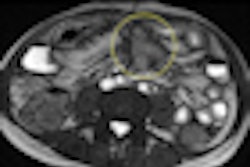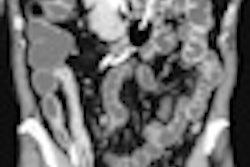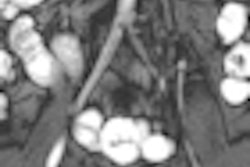MR enterography (MRE) is as reliable as CT enterography (CTE) in diagnosing Crohn's disease and reducing a patient's exposure to ionizing radiation, according to a study published online in the European Journal of Radiology.
The study by researchers at Rhode Island Hospital in the U.S., found that MRE without anti-peristaltic agents results in high diagnostic confidence for the presence or absence of Crohn's disease when compared to CTE (15 June 2011, epub).
The study included 26 patients to be tested for known or suspected Crohn's disease. The patients underwent CTE immediately followed by MRE without the use of an anti-peristaltic agent.
MRE demonstrated excellent efficacy both in detection of Crohn's disease as well as in differentiation of active from chronic small bowel changes without the ionizing radiation of CT.
Lead study author Dr. David J. Grand, director of the Body MRI program at Rhode Island Hospital, described the results as an important discovery in the diagnostic process for Crohn's disease. The information will help clinicians develop safer approaches toward testing, lower patients' exposure to radiation, and maintain the integrity of diagnosis.



















